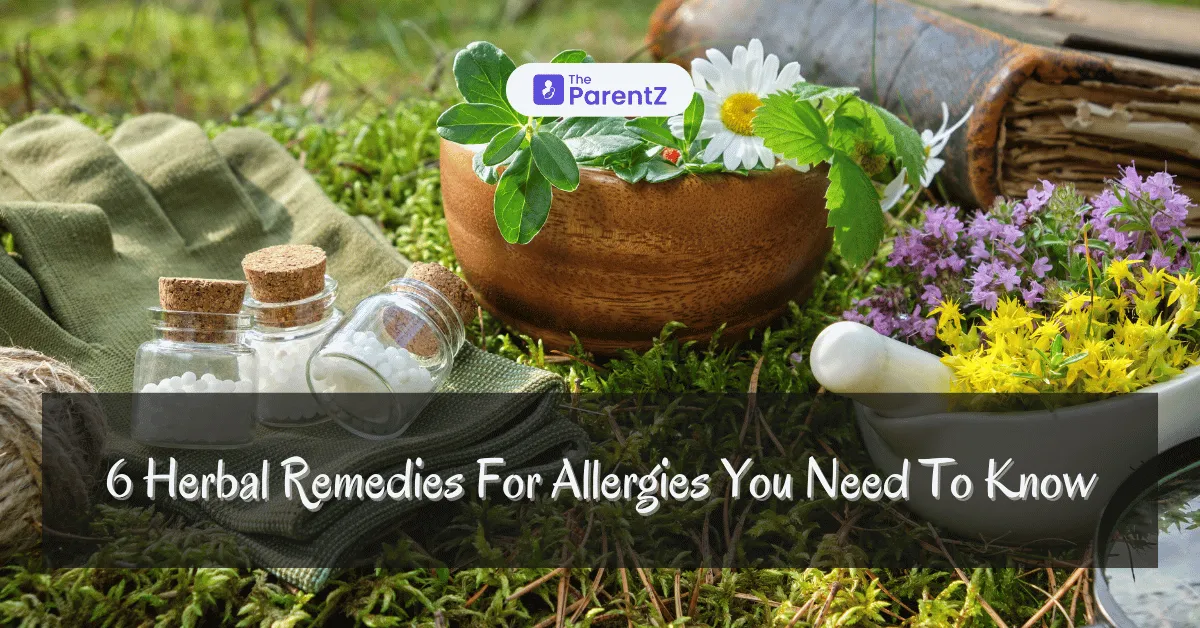The allergy season hits with a never-ending cycle of sneezing, itching, and watery eyes. From pollen to dust mites or pet hairs, allergies can significantly impact your everyday life. Even though over-the-counter medicines can provide instant relief to the symptoms, sometimes, they come with unwanted restlessness too. This is where the role of herbal remedies comes in—a natural yet effective alternative to soothe your energy.
Six herbal remedies that can ease your allergies
Read below this article to explore six herbal remedies that can ease your allergies.
Butterbur
Butterbur is also considered a natural antihistamine, and this herb works by blocking the production of histamines, chemicals responsible for triggering allergy symptoms. In fact, according to a study, it was noticed that butterbur extract was as effective as some prescription antihistamines when it came to reducing hay fever symptoms, that too without causing any drowsiness. Moreover, it was found to be effective, especially for people suffering with nasal congestion or itchy, watery eyes.
Stinging Nettle
Did you know that stinging nettle is actually a powerhouse herb for combating allergies? It is especially considered for its and helps by reducing the body’s histamine response. Moreover, stinging nettle extract can significantly reduce sneezing and congestion. And the best part is it is available in the form of tea, tincture, or capsule, so you could easily add it to your daily routine.
Quercetin
While quercetin is not a herb, it is a plant-based compound found in many foods and herbs, including onions, apples, and green tea. Besides, it is particularly considered for providing allergy relief due to its antihistamine and anti-inflammatory properties. Quercetin, according to studies, inhibits the release of histamines, preventing the chain reaction that causes sneezing and coughing. Moreover, it is also known to stabilize mast cells, which play a big role in allergic reactions.
Peppermint
For people dealing with stuffy sinuses, peppermint can really be an effective ingredient in providing relief. It's a natural decongestant that helps to clear nasal passages and reduces inflammation in the respiratory tract. Simply adding a few drops of peppermint essential oil in a diffuser or even a steaming hot cup of peppermint tea can really help alleviate the allergy symptoms while also providing instant relief.
Local Honey
This classic ingredient is great when it comes to seasonal allergies, as it might help your body build immunity. It is said that consuming a teaspoon of raw local honey daily exposes you to small amounts of pollen, which potentially improves your immune system over time to deal with allergies caused by pollen.
Turmeric
Turmeric is considered a superfood, and there’s a good reason why. Curcumin, the active compound in turmeric, is known for its powerful anti-inflammatory and antioxidant properties that play a significant role in reducing allergy symptoms. You can simply add turmeric to your diet—in tea, smoothies, or curries—to keep your allergies in check. You can even pair it with black pepper to enhance its absorption.
Takeaway
Herbal remedies offer a gentle approach to treating allergic reactions compared to traditional medications. These simple yet effective remedies work not just by targeting the symptoms but also by strengthening the immune system overall. From butterbur to turmeric, here are some of the most effective herbal remedies to keep those allergic reactions in check.









Be the first one to comment on this story.